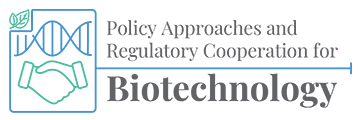Codex Alimentarius
Cooperators:
Codex Members
Geography/Region:
Global
Mechanism of Cooperation:
Policy Alignment
Category of Cooperation:
Forum
Last Updated:
August 8, 2024
Opportunity for APEC Economies
Several APEC economies like the rest of the world continue to use guidance provided by the standards setting body, Codex Alimentarius Commission to develop their domestic regulatory frameworks in agricultural biotechnology, resultantly creating better alignment between them. Codex texts related to recombinant-DNA organisms facilitate harmonization, transportability of data, and enable the resolution of “low-level presence” in food situations. These texts will provide vital guidance to APEC economies that are in the process of developing their domestic frameworks. The group as a whole may consider using Codex guidance documents to potentially develop common application forms and templates for application dossiers for the benefit of all economies.
Description
Codex is strongly committed to promoting safe foods. Codex Alimentarius Commission’s (CAC) objectives are protection of the health of consumers, assurance of fair practices in food trade and coordination of all food standards work. Codex Alimentarius is a collection of internationally adopted food standards, guidelines, codes of practice and other recommendations.
Biotechnology is one of the thematic areas covered by Codex and the work has focused on aspects related to risk assessment. Risk analysis is used in Codex to estimate the risk to human health and safety of a hazard or condition of a food, to identify and implement appropriate measures to control the risks and to communicate to all involved about the risks and measures applied. Codex has adopted principles and guidelines to assess the safety of foods derived from recombinant-DNA plants, animals and microorganisms. It provides a framework for undertaking risk analysis on the safety and nutritional aspects of foods derived from genetically engineered organisms.
The ad hoc Intergovernmental Task Force on Food derived from Biotechnology (TFFBT), a subsidiary body of the CAC was established in 1999 with an objective to develop standards, guidelines and recommendations to enable safety assessment of genetically engineered foods. The Codex texts that were developed by the TFFBT are listed here. These Codex guidelines provide a robust, scientifically sound and internationally accepted approach to the safety assessment of genetically engineered foods that has been adopted by governments worldwide as they have developed their domestic guidance documents and standards.
Relevant links
- Codex standards and related texts: https://www.fao.org/fao-who-codexalimentarius/codex-texts/en/.
- Role of Codex in Biotechnology: https://www.fao.org/fao-who-codexalimentarius/thematic-areas/biotechnology/tr/.
